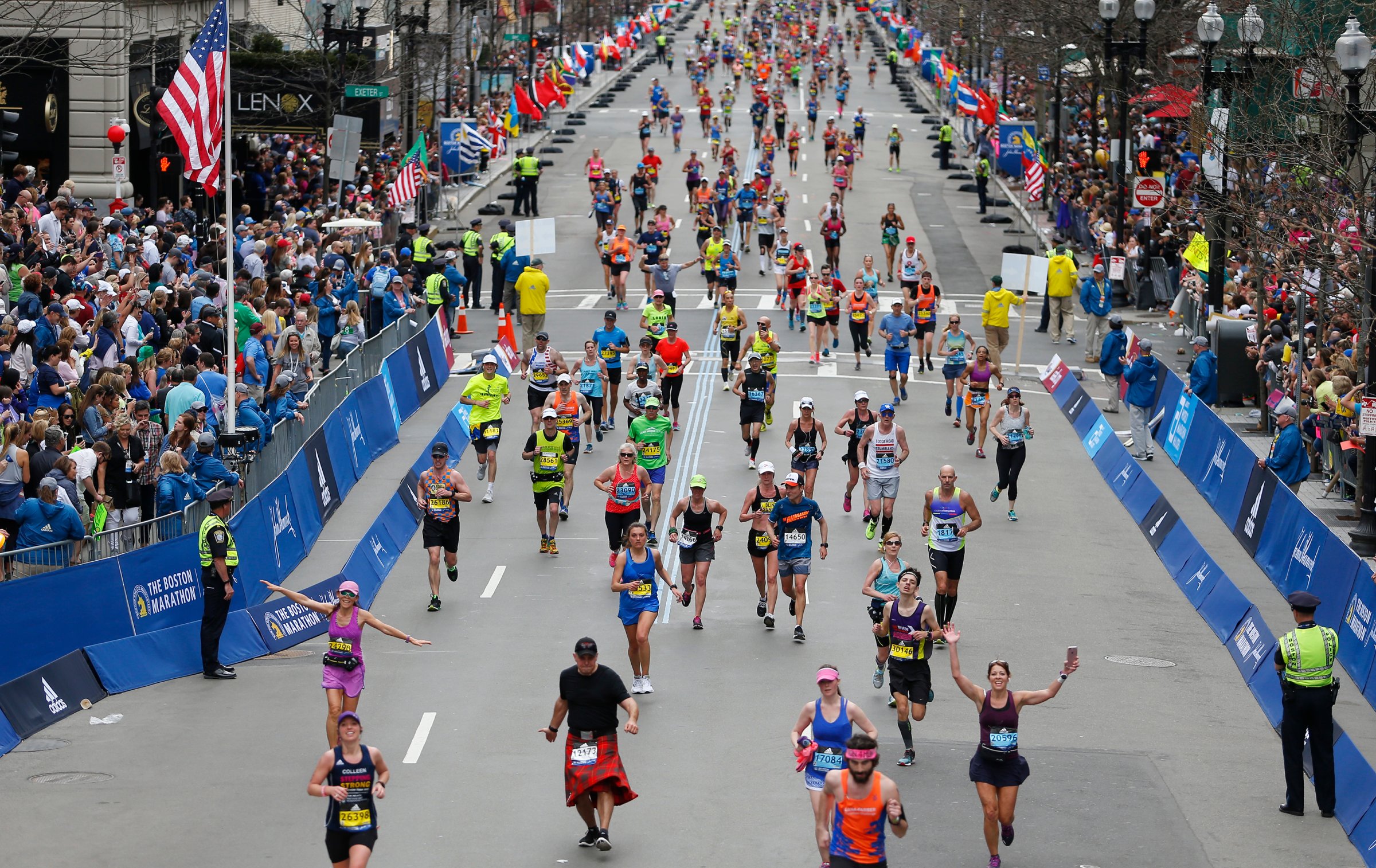
The Boston Marathon has reiterated its policy that allows transgender runners to compete under their self-identified gender – amid renewed debate among runners.
The Boston Athletic Association, which oversees the marathon, told NPR that organizers only ask that runners compete under the same gender identity they declared when they qualified for the marathon. That policy has been in place for “several years,” according to the statement given to NPR. The New York and Chicago marathons have similar policies, NPR reported.
“We don’t require that runners outline their gender identity history with us, so we can’t say for certain how many trans runners are in our race. We do know that we have had several transgender runners in the past,” the Boston Athletic Association told NPR.
However, runners are required to show a government-issued ID to get an official bib number and, BAA said “We do compare the ID with the person’s qualification-associated gender description.”
The Boston Athletic Association told NPR it does not have a specific policy on how it would handle a runner whose gender identity is not the same as the one listed on the government ID. The BAA said it would try to resolve the issue with “a strong emphasis on inclusion.”
The issue of transgender runners has become a topic of discussion in the marathon community following an article in Canadian Running magazine about three transgender women who will run the elite race as their identified gender. Some commenters questioned whether transgender women have an unfair advantage in the race because they could have higher levels of testosterone.
Canadian Running highlighted three transgender women who qualified for the 2018 Boston Marathon — Amelia Gapin of Jersey City, New Jersey; Grace Fisher of Hancock, Maryland; and Stevie Romer of Woodstock, Illinois.
In 2016, Gapin was on the cover of Women’s Running and told that publication that being able to openly run as a woman was something that motivated her to move forward with gender reassignment surgery, which she had previously been undecided about.
Gapin went “back and forth about surgery for awhile,” Women’s Running wrote. “She hesitated for many reasons, not the least of which was the apprehension and fear she had of the long and intense post-operation recovery period.”
Women were barred from officially entering in the Boston Marathon until 1971. The issue came to national attention in 1968 when Katherine Switzer was issued a bib number after she did not identify herself as female. Race organizers famously tried unsuccessfully to physically pull her out of the race.
The 122nd Boston Marathon, which is the oldest annual marathon in the world, takes places on “Marathon Monday,” April 16.
More Must-Reads from TIME
- Donald Trump Is TIME's 2024 Person of the Year
- Why We Chose Trump as Person of the Year
- Is Intermittent Fasting Good or Bad for You?
- The 100 Must-Read Books of 2024
- The 20 Best Christmas TV Episodes
- Column: If Optimism Feels Ridiculous Now, Try Hope
- The Future of Climate Action Is Trade Policy
- Merle Bombardieri Is Helping People Make the Baby Decision
Contact us at letters@time.com